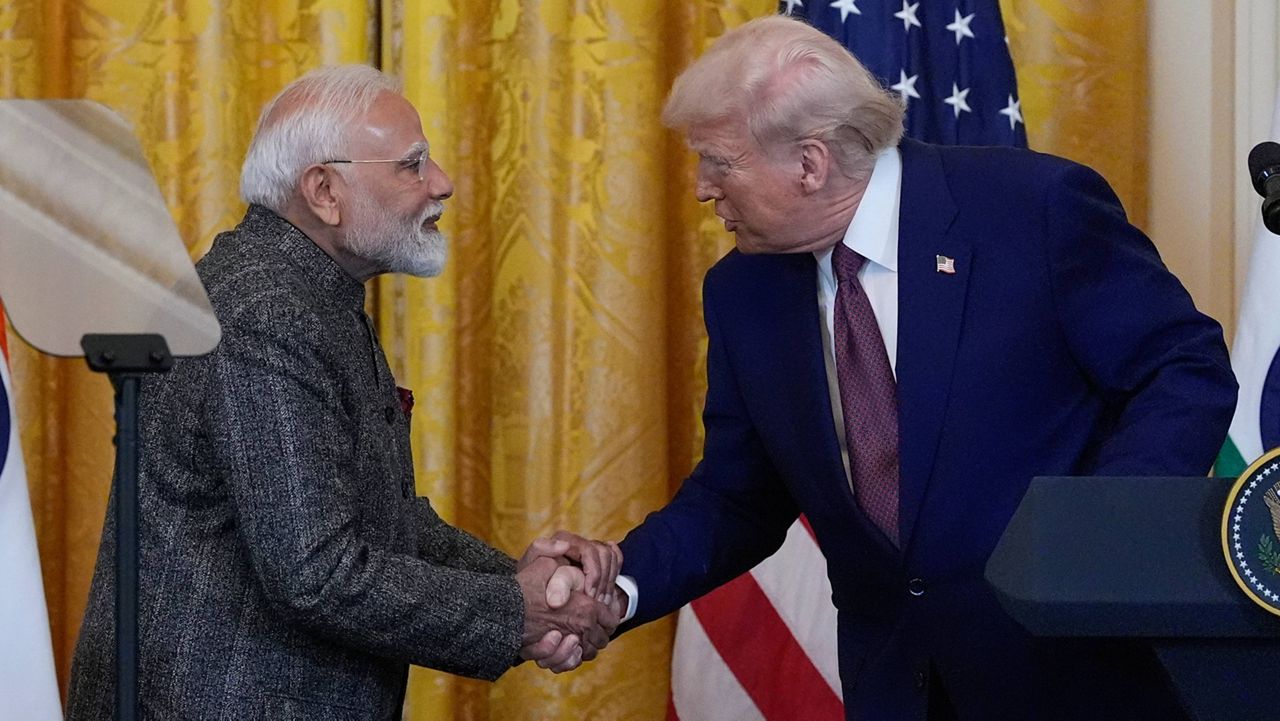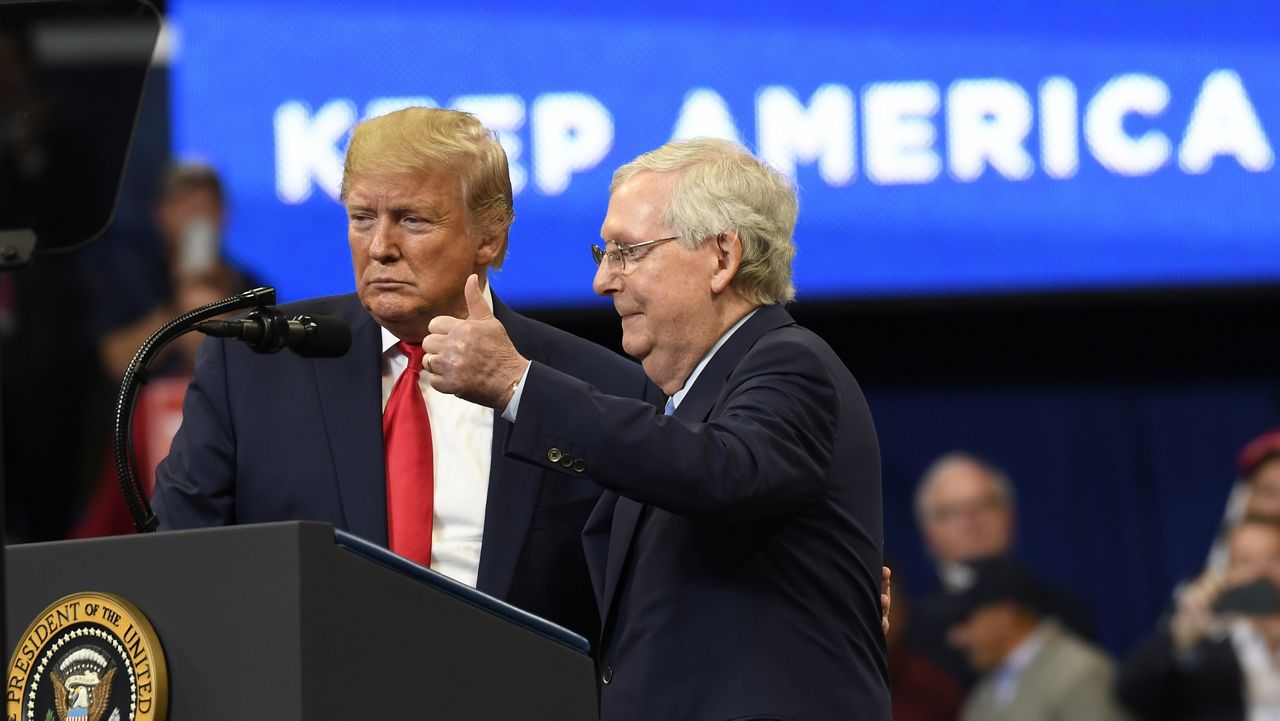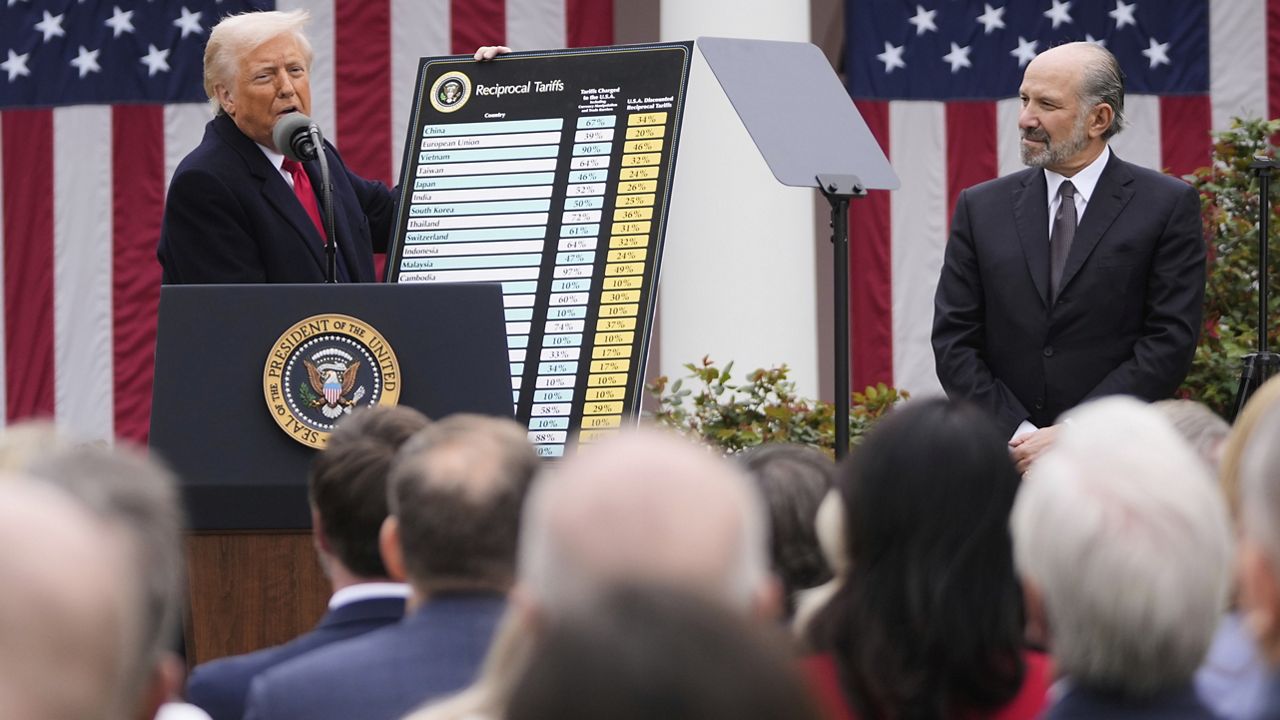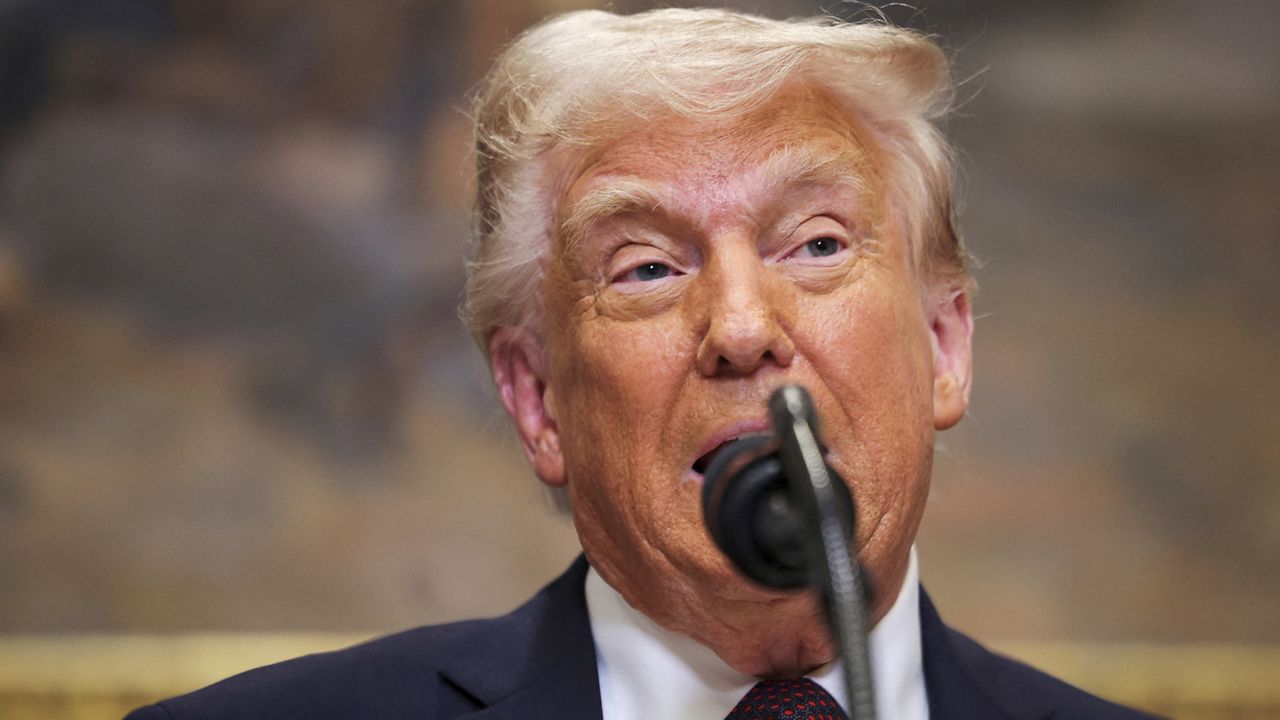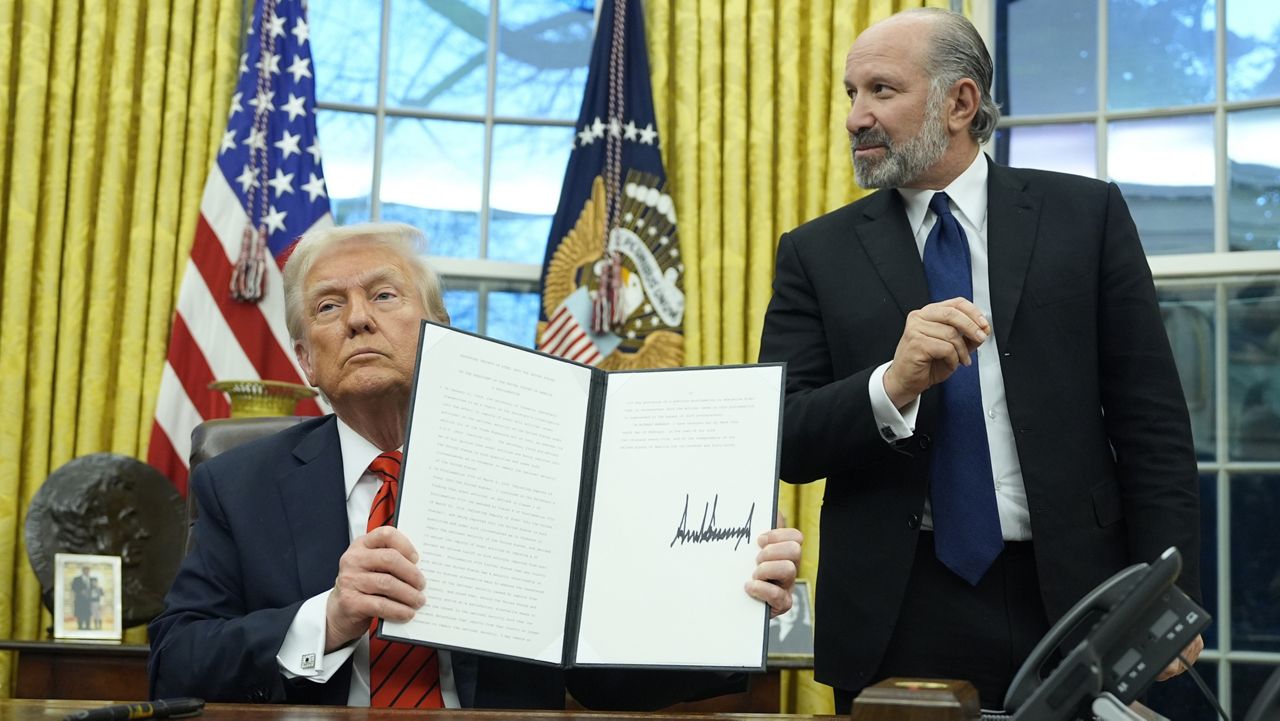WASHINGTON — President Donald Trump on Wednesday unveiled his long-pledged and highly anticipated sweeping new tariffs on nations across the globe, establishing a 10% baseline on nearly all imports while upping the rate to impose higher individual rates on dozens of countries with which the U.S. has a deficit on trade, including key allies like the European Union and geopolitical rivals like China.
Trump made the closely-watched announcement at a ceremony attended by nearly all of his Cabinet, House Speaker Mike Johnson and other officials in the White House Rose Garden – the first event in the storied location of his second administration – declaring the day “one of the most important” in American history.
“April 2, 2025 will forever be remembered as the day American industry was reborn, the day America's destiny was reclaimed and the day that we began to make America wealthy again,” the president said.
Trump lamented that for years the U.S. has been “looted, pillaged, raped and plundered” by other nations when it comes to trade, going on to proclaim that with Wednesday’s announcement we are “finally putting America first.”
“We take care of countries all over the world,” Trump said before adding “But we have to take care of our people, and we're going to take care of our people first.”
Trump declared a national economic emergency to levy the tariffs on the basis that America’s “persistent trade deficit” has led to “the absence of reciprocity in our trade relationships and other harmful policies like currency manipulation and exorbitant value-added taxes (VAT) perpetuated by other countries.”
He held up charts during his remarks to explain some of the individualized new rates on particular countries, saying the figures were reached by calculating the combined rate of the nation’s tariffs on the U.S., their nonmonetary barriers and other unfair practices and charging them about half of that total.
Trump said that meant the tariffs were not “full” reciprocals and proclaimed he was being “very kind” with such an approach.
China, Trump explained, will see a 34% tariff under the new plan while the European Union will get 20% and Japan, which he referred to as a friend earlier in his remarks, will get hit with a 24% duty.
The 10% rate would be collected starting Saturday and the higher rates would be collected beginning April 9.
LIBERATION DAY RECIPROCAL TARIFFS 🇺🇸 pic.twitter.com/ODckbUWKvO
— The White House (@WhiteHouse) April 2, 2025
Speaking in front of a crowd that included many people sporting safety vests and hard hats, Trump said the new tariffs will prioritize American workers. Along with balancing America’s trade relationships, he has long said his tariff agenda will spur domestic manufacturing and job creation and bring in revenue for the country.
But the move also threatens to upend the global order and jeopardize Trump's campaign trail pledge to lower prices for Americans at home as some economists warn the tariffs could worsen inflation.
Several Republican senators, particularly from farm and border states, have expressed concerns about Trump’s tariff agenda and the uncertainty has rattled U.S. markets.
The new tariffs will come on top of recent announcements of 25% taxes on auto imports, set to take effect at midnight; levies against China, Canada and Mexico; and expanded trade penalties on steel and aluminum. Trump has also imposed tariffs on countries that import oil from Venezuela and he plans separate import taxes on pharmaceutical drugs, lumber, copper and computer chips.
Canada and Mexico would not face higher rates on what they’re already being charged by Trump in what he says is an effort to stop illegal immigration and drug smuggling. As of now, goods that comply with the USMCA North American trade pact would be excluded from those tariffs.
But the 20% charged on imports from China due its role in fentanyl production would largely be added to the 34% announced by Trump. The specific products that Trump is tariffing, such as autos, would be exempt from the tariffs unveiled Wednesday, as would products such as pharmaceutical drugs that he plans to tariff at a later date.
Canada and Mexico would not face higher rates on what they’re already being charged by Trump in what he says is an effort to stop illegal immigration and drug smuggling. As of now, goods that comply with the USMCA North American trade pact would be excluded from those tariffs.
But the 20% charged on imports from China due its role in fentanyl production would largely be added to the 34% announced by Trump. The specific products that Trump is tariffing, such as autos, would be exempt from the tariffs unveiled Wednesday, as would products such as pharmaceutical drugs that he plans to tariff at a later date.
The Chinese government delivered a measured response to the new tariffs, saying in a statement: “China believes that protectionism leads nowhere, and trade and tariff wars have no winners. This has been widely recognized in the international community.”
Canadian Prime Minister Mark Carney said Trump's new tariffs would “fundamentally change the international trading system." He noted that the tariffs already in place against his country and those Trump says he plans to add will be fought with countermeasures.
“In a crisis, it’s important to come together and it's essential to act with purpose and with force and that’s what we will do,” Carney said.
Rep. Suzan DelBene, D-Wash., said the tariffs are “part of the chaos and dysfunction” being generated across the Trump administration. The chair of the Democratic Congressional Campaign Committee stressed that Trump should not have the sole authority to raise taxes as he intends without getting lawmakers' approval, saying that Republicans so far have been “blindly loyal.”
“The president shouldn’t be able to do that," DelBene said. "This is a massive tax increase on American families, and it’s without a vote in Congress. ... President Trump promised on the campaign trail that he would lower costs on day one. Now he says he doesn’t care if prices go up — he’s broken his promise.”
Even Republicans who trust Trump's instincts have acknowledged that the tariffs could disrupt an economy with an otherwise healthy 4.1 % unemployment rate.
“We’ll see how it all develops,” said Johnson, the House speaker. “It may be rocky in the beginning. But I think that this will make sense for Americans and help all Americans.”
The Associated Press contributed to this report.






